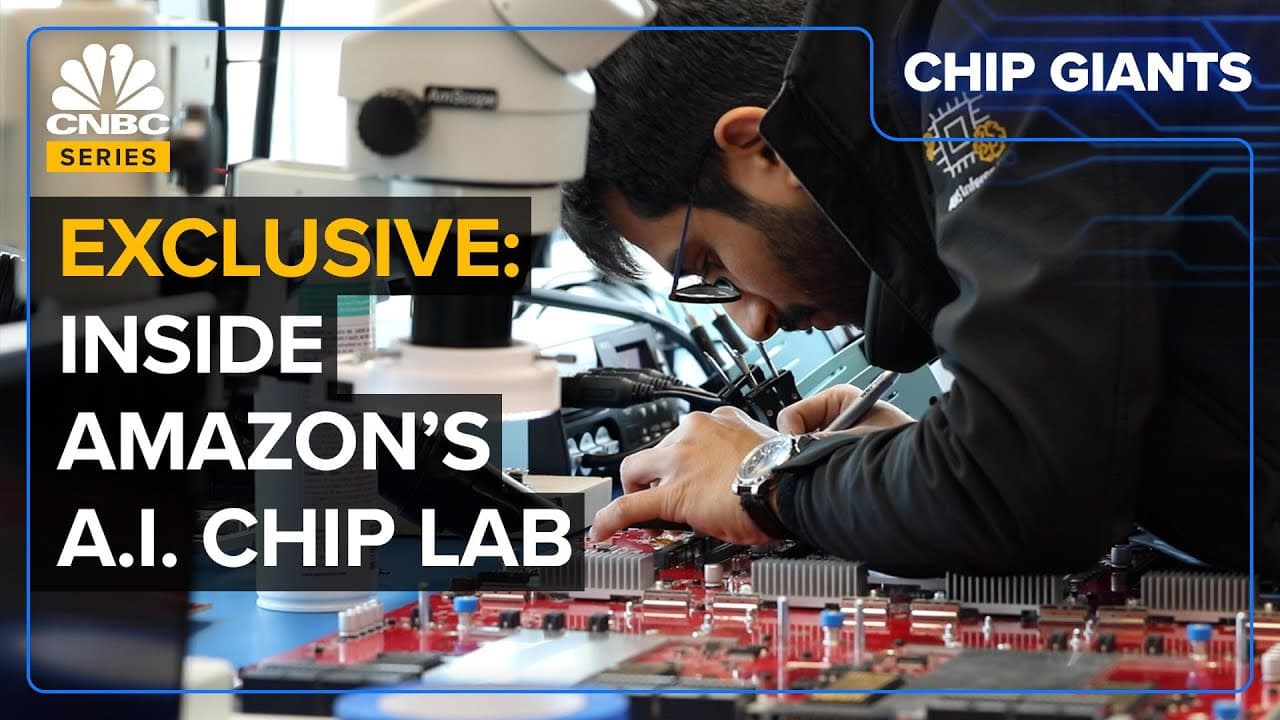How Amazon Is Making Custom Chips To Catch Up In Generative A.I. Race
17 Nov 2023 (2 years ago)

Introduction (0s)
- Amazon has a chip lab in Austin, Texas designing custom microchips for data centers and AI applications.
- The custom chips are aimed at competing with Intel and Nvidia and allow Amazon to save costs and enhance performance.
- Amazon's CEO Adam Selipsky recognizes the demand for chips in generative AI and believes Amazon is well-positioned to supply the capacity needed by customers.
- Amazon Web Services (AWS) is the world’s largest cloud computing provider, with significant profits funding its custom silicon projects and developer tools.
- AWS's profit and growth rates have declined, and Amazon hopes to leverage custom chips and AI to regain momentum and compete with Microsoft and Google.
Designing custom silicon (3m0s)
- Amazon's subsidiary Annapurna Labs, acquired in 2015, assists in custom chip design with facilities in Austin, Texas, Silicon Valley, Canada, and Israel.
- AWS started producing custom silicon in 2013, with the Nitro hardware, and released ARM-based server chips (Graviton) in 2018.
- AWS has developed AI-focused chips: Trainium for training machine learning models and Inferentia for low-latency machine learning inference.
- Nvidia currently leads in AI model training hardware, while companies like Apple and Google have also invested in custom silicon.
- Microsoft, compared to Amazon and Google, is behind in the custom chip market, reportedly developing an AI chip named Athena with AMD.
Generative A.I. race (7m6s)
- AWS invested in AI infrastructure and services long before the recent generative AI surge, with innovations like recommendation engines and Amazon Alexa.
- Amazon's new large language models (LLMs) include Titan and a cloud service called Bedrock to streamline generative AI applications.
- Competitors Microsoft and Google rapidly gained attention with AI initiatives, prompting Amazon to focus on accelerating conversations and deployments in generative AI.
- AWS emphasizes providing various state-of-the-art models from multiple providers intending to cater to different customer needs.
Full-stack approach (9m39s)
- AWS's AI products, like AWS HealthScribe and CodeWhisperer, are used by many customers and provide significant advantages in efficiency and task completion.
- Amazon has a multi-faceted AI strategy through their machine learning hub, SageMaker, which supports customers’ AI endeavors across different domains.
- AWS has announced a $100 million generative AI innovation center to assist customers in understanding and applying generative AI in their business contexts.
- Customers considering Amazon, Google, and Microsoft must choose the best fit for their generative AI requirements, with Amazon offering a comprehensive approach.